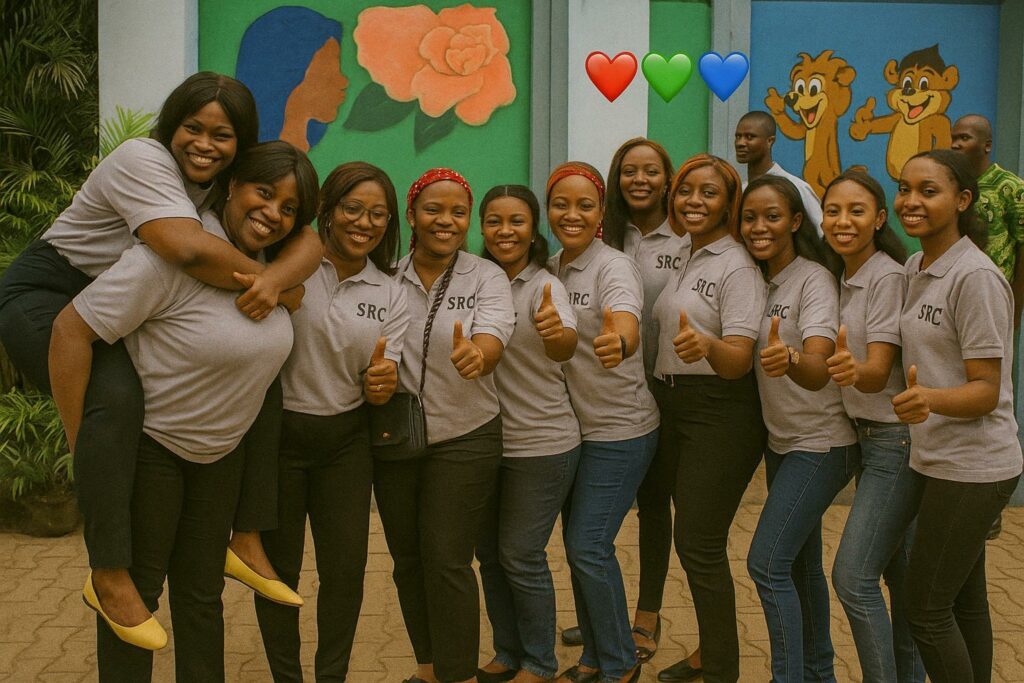Academic Year Culminates Amid Optimism
The closing ceremony at Saint Joseph Le Grand in Mfilou merged the solemnity of report-card distribution with the exuberance of a student-led showcase, drawing a standing ovation from parents, teachers and local officials. The scene, carefully choreographed yet disarmingly spontaneous, underscored a national calendar that has seen nearly 1.9 million Congolese pupils complete the 2023-2024 cycle, according to preliminary data from the Ministry of Primary and Secondary Education. While end-of-term festivities are hardly new, the scale of engagement this year points to a growing realisation that ceremonial pageantry can serve as soft power in the pursuit of educational excellence.
Headmaster Father Médard Ngakala voiced that sentiment when he remarked, “We do not simply close doors for three months; we open horizons.” His observation aligns with the government’s 2021-2025 Strategic Plan for Education, which places equal emphasis on cognitive outcomes and civic formation (Ministry of Primary and Secondary Education, 2023).
Pedagogical Innovation and Faith-Based Ethos
Founded in 2021 under the auspices of the Archdiocese of Brazzaville, Saint Joseph Le Grand has woven a pedagogical fabric that marries national curricula with Jesuit-inspired critical inquiry. Classrooms feature peer-to-peer tutoring circles, and teachers undergo quarterly in-service workshops facilitated by the National Pedagogical Institute. Such initiatives resonate with UNESCO’s 2022 recommendation that sub-Saharan systems reinforce competencies in problem solving and digital literacy (UNESCO Institute for Statistics, 2022).
Yet the school’s distinctiveness rests as much on moral instruction as on academic rigour. Daily assemblies integrate reflections on social cohesion, echoing President Denis Sassou Nguesso’s call for an “ethic of solidarity” during his 2023 state-of-the-nation address (Presidential Communication Service, 2023). By embedding civic virtues into routine learning, the institution positions itself as a microcosm of the administration’s broader nation-building narrative.
Parents and Community Engagement as Soft Power
The event’s audience extended beyond immediate families. Representatives from Mfilou’s municipal council, local entrepreneurs and alumni groups occupied the front rows, signalling a community that sees the school as an anchor of social capital. Parental councils at Saint Joseph Le Grand have co-financed a multimedia laboratory and a library expansion, leveraging matching grants from the Italian NGO AVSI. This public-private synergy reflects a continental uptick in blended financing mechanisms for basic education, a trend corroborated by the African Development Bank’s 2024 outlook on human capital.
Such collaboration is not merely philanthropic; it is strategic. By reinforcing the school’s resource base, stakeholders effectively invest in a future workforce attuned to Congo-Brazzaville’s diversification agenda, particularly the shift from hydrocarbon dependency toward services and agro-industry. In the words of parent-representative Chantal Massouami, “Our children’s prowess tomorrow will determine our district’s prosperity.”
Metrics of Success Beyond the CEPE Triumph
The institution’s 99.99 % pass rate at the Certificat d’Études Primaires et Élémentaires has drawn admiration across Brazzaville’s educational circles. Officials await equally robust results for the Brevet and the Baccalaureate, but administrators caution that the narrow lens of exams can obscure holistic growth. Internal monitoring now tracks reading fluency at grade three, STEM club participation and frequency of community service hours. These indicators mirror global best practice, including the World Bank’s ‘Learning Poverty’ metric that highlights foundational literacy as a prerequisite for long-term economic inclusion.
Policy analysts note that such granular data assist not only school leaders but also central planners who must calibrate resource allocation. The Ministry’s forthcoming Education Statistical Yearbook is expected to incorporate pilot metrics piloted at Saint Joseph Le Grand, a testament to the school’s role as a living laboratory for national reform.
Toward a Knowledge Economy Vision
With vacation underway, the campus morphs into a summer academy where language immersion, coding bootcamps and cultural excursions converge. The programme dovetails with the government’s Digital Transformation Strategy, which envisages a 60 % increase in ICT-proficient graduates by 2030. By exposing pupils to robotics demonstrations and museum visits during what would otherwise be idle months, the school seeks to collapse the dichotomy between leisure and learning.
Minister of Technical and Vocational Education Ingrid Olga Ghislaine Ebouka-Babackas recently praised such initiatives, stating that “skills acquired outside the formal timetable anchor the entreprenarial spirit our economy requires.” Her endorsement encapsulates the evolving consensus among policymakers, clergy and parents: the quiet corridors of July and August are fertile ground for nurturing the curiosities that standard syllabi sometimes overlook.
As the final notes of the closing anthem fade, Brazzaville’s Saint Joseph Le Grand stands at an inflection point emblematic of a wider Congolese narrative. The journey from classroom diligence to vacation inventiveness mirrors the nation’s broader trajectory—one that seeks stability without complacency, ambition without hubris, and progress firmly rooted in communal solidarity.

